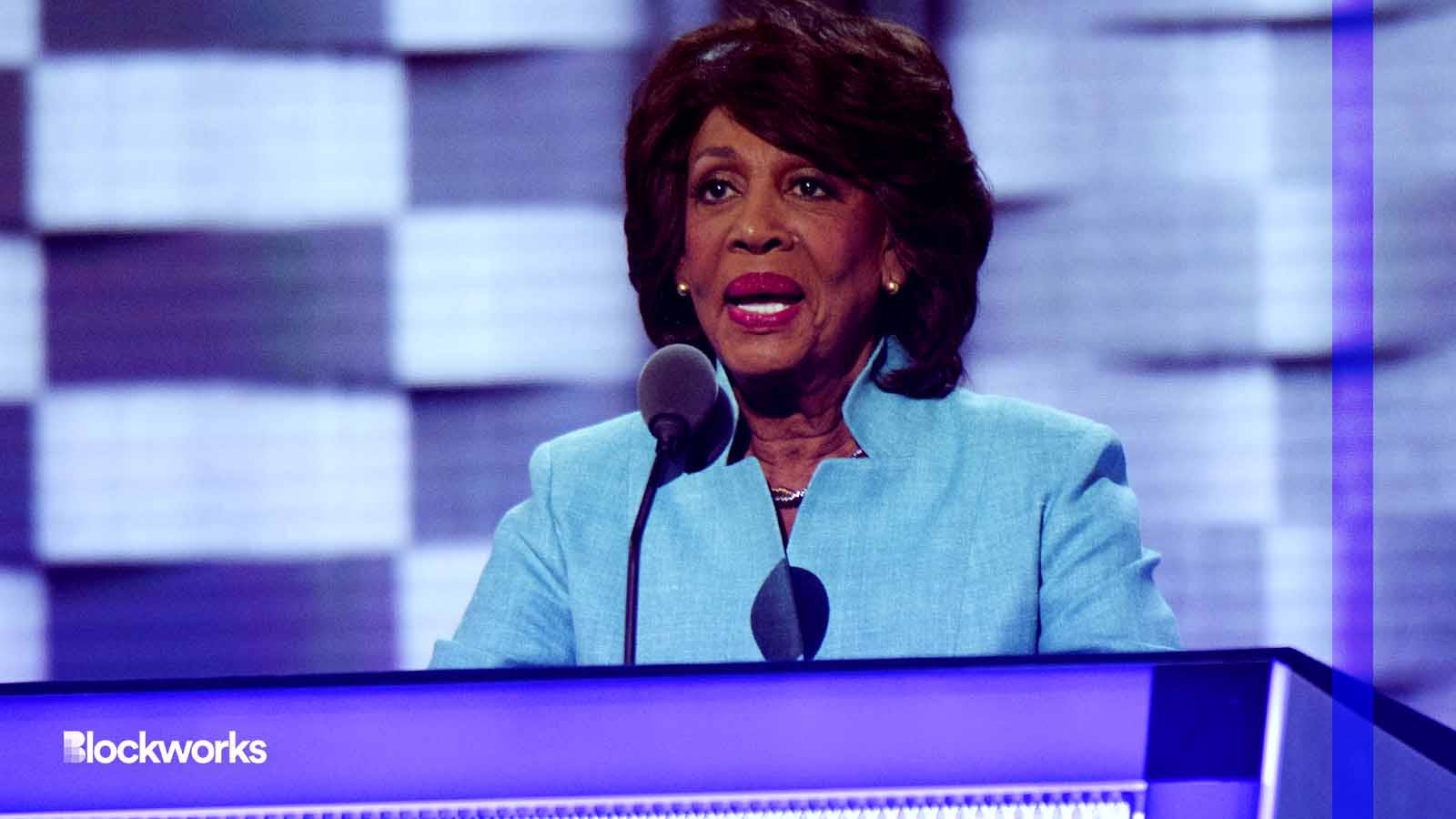Rep. Waters surprised by ‘strong advocacy’ for CFTC crypto oversight
Lawmakers continued to spar over token classification processes Tuesday during another crypto hearing in the House Financial Services Committee

US Rep. Maxine Waters | Gregory Reed/Shutterstock modified by Blockworks
The House Financial Services Committee gathered Tuesday afternoon to discuss the future of crypto market regulation. The hearing, titled “The Future of Digital Assets: Providing Clarity for the Digital Asset Ecosystem,” featured witnesses from the crypto industry and legal experts.
Lawmakers focused questions on token classification and two crypto bill proposals that have yet to make it to the House floor.
In terms of how to classify crypto tokens and fit them into the existing landscape, Republican committee members continued to largely push for more involvement from the CFTC.
“I did not anticipate that we would have such strong advocacy for the CFTC,” Rep. Maxine Waters, D-Cali., noted, referring to her Republican colleagues.
Witness Coy Garrison, a partner at Steptoe & Johnson LLP and former counsel to SEC Commissioner Hester M. Peirce, pointed out that both the CFTC and the SEC have roles in the future of crypto regulation, and further congressional clarity is needed.
“Sweeping statements that nearly all digital assets are securities, or are not securities, ignore the complexity of the analysis and distract from finding a workable solution to the numerous legal and regulatory issues involved in this context,” Garrison said during his prepared testimony Tuesday.
“The application of the Howey test to digital assets is not always a straightforward exercise,” Garrison added, but the process for determining which crypto assets are securities should be clear.
Rep. David Scott, D-Ga., advocated for existing securities laws, arguing that crypto companies and token issuers already have enough guidance from previously passed legislation and SEC policies. Scott criticized a current discussion draft the committee has reviewed, arguing it places power in the wrong hands.
“I believe that under this misguided digital asset market structure bill we’re dealing with now, the fundamental approach to security laws is effectively undermined to the detriment of the American investor,” Scott said during the hearing. “And I’m particularly referencing sections of the bill which gives much of the authority over digital assets previously with the SEC, and instead placing it at the CFTC.”
The hearing comes one day after Reps. Warren Davidson, R-Ohio, and House Majority Whip Tom Emmer, R-Minn., both members of the Financial Services Committee, introduced the SEC Stabilization Act.
The bill suggests that the SEC remove the chair position, which Gary Gensler currently holds, and instead appoint an “executive director” to oversee operations. Reps. Davidson and Emmer also propose adding a sixth SEC commissioner. There are currently five, including Gensler, which are nominated by the president and approved by the Senate.
“I appreciate that so much innovation is happening in our country. I hope we can keep some of it here,” Davidson said during his allotted questioning time Tuesday.
“If the existing framework and existing laws are fully adequate, why can’t the chairman of the SEC answer that? It’ll tell you it’s not clear enough,” Davidson added, referring to Gensler’s inability to answer whether ether is a security.
Get the news in your inbox. Explore Blockworks newsletters:
- The Breakdown: Decoding crypto and the markets. Daily.
- 0xResearch: Alpha in your inbox. Think like an analyst.






